Related: Giuliani says he didn’t know most Americans can’t access his VIP coronavirus treatment regimen. By Matthew Rozsa / Salon
 Experts warn of low Covid vaccine trust among Black Americans. By P.R. Lockhart / NBC News
Experts warn of low Covid vaccine trust among Black Americans. By P.R. Lockhart / NBC News
The patients who stream into her clinic in a low-income and predominantly Black section of Chicago’s South Side have been terrified by the coronavirus pandemic, said Dr. Brittani James, stressed out by its harmful effects on the community and frustrated by mixed messages from government officials. But now, just as possible solution to the virus’s spread is on the horizon, she is particularly worried about what she is hearing from her patients. Many of them fear that the vaccines aimed at stopping the spread of Covid-19 will be harmful to Black Americans. Read more
Related: Black And Brown Doctors (Like Me) Are Not OK Right Now. By Susan Lopez / HuffPost
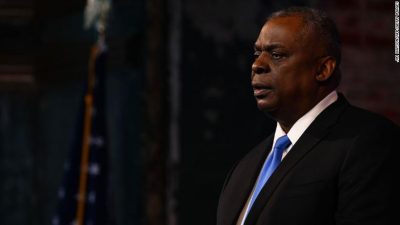 What Biden’s cabinet picks really say about diversity. By Paul Begala / CNN
What Biden’s cabinet picks really say about diversity. By Paul Begala / CNN
Here’s what some of my right-wing friends don’t get about Democrats’ commitment to diversity. They think people like Biden insist on diversity because of some politically correct white liberal guilt. That may be true for some, but for those of us with actual experience in the real world, the commitment to diversity is far more practical, besides being fundamentally just. When you broaden the pool of talent, you get more talented people. Biden nominates Gen. Lloyd Austin as Secretary of Defense. Read more
Related: Joe Biden picks Susan Rice as head of Domestic Policy Council. By Deidre Shesgreen and Jeanine Santucci / USA Today
Related: Inside Biden’s Meeting With Civil Rights Leaders. By Ryan Grim / The Intercept
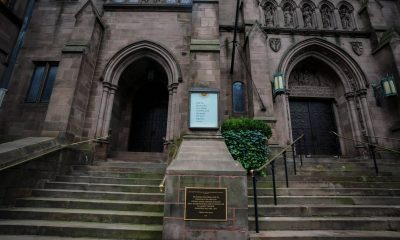 More US churches commit to racism-linked reparations. By David Crary / ABC News
More US churches commit to racism-linked reparations. By David Crary / ABC News
The Episcopal Diocese of Texas acknowledges that its first bishop in 1859 was a slaveholder. An Episcopal church erects a plaque noting the building’s creation in New York City in 1810 was made possible by wealth resulting from slavery. And the Minnesota Council of Churches cites a host of injustices, from mid-19th century atrocities against Native Americans to police killings of Black people, in launching a first-of-its kind “truth and reparations” initiative engaging its 25 member denominations. These efforts reflect a widespread surge of interest among many U.S. religious groups in the area of reparations, particularly among long-established Protestant churches that were active in the era of slavery. Many are weighing how to make amends through financial investments and long-term programs benefiting African Americans. Read more
Related: Black Americans donate a higher share of their wealth than Whites. By Michelle Singletary / Wash Post
Related: Group of 37 CEOS says it will hire 1M Black Americans over 10 years. By Brett Molina / USA Today
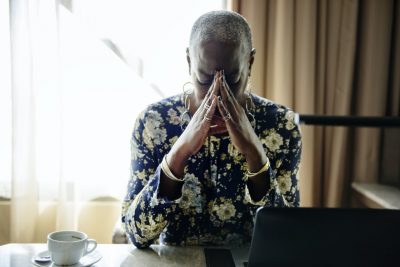 The Retirement Crisis Facing Black Americans. By Rodney Brooks / US News
The Retirement Crisis Facing Black Americans. By Rodney Brooks / US News
LONG-STANDING INCOME and wealth disparities along with low savings rates have endangered retirement readiness for millions of elderly Black Americans, who still haven’t recovered from the devastating impact of the 2008 housing crash. The coronavirus pandemic has worsened an already bleak outlook. “We are using all of our money to maintain life,” says Rene Nourse, vice chair of the Association of African American Financial Advisors in Washington, D.C. “Some of us don’t have extra money to build up worth.” Read more
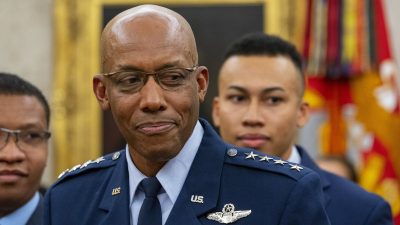 For Air Force Leader, Making Video On Racism He’s Faced Was ‘The Right Thing To Do.’ By Rachel Martin / NPR
For Air Force Leader, Making Video On Racism He’s Faced Was ‘The Right Thing To Do.’ By Rachel Martin / NPR
Just before Gen. Charles Q. Brown Jr. was confirmed as Air Force chief of staff in June, he issued an emotional and personal video message about racism in the military. At the time, the country was roiling in the wake of the police killing of George Floyd, and Brown, who is Black, felt compelled to speak out. On NPR’s Morning Edition, he explains why. “It was my own personal experiences but thinking about our two sons and their experiences, [is] actually what got me to do it,” Brown says. He was the commander of Pacific Air Forces at the time and was awaiting confirmation as the Air Force’s chief of staff. Read more
 The Senseless Killing of Brandon Bernard. Bridget Read / MSN News
The Senseless Killing of Brandon Bernard. Bridget Read / MSN News
Brandon Bernard was declared dead at 9:27 p.m. last night. He was killed just as planned, despite a national outcry to spare his life, making him the ninth person since July to be executed by the Trump administration. Before then, the federal government had not killed a death row inmate in 17 years, but Donald Trump has rushed ahead in an unprecedented, ghastly spree: He has four more executions planned before Joe Biden takes office. Bernard was 40 years old. Read more
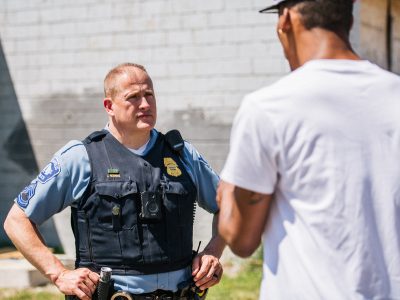 Minneapolis Shifts $8 Million In Police Funding, Keeps Force At Current Level. By Avie Schneider / NPR
Minneapolis Shifts $8 Million In Police Funding, Keeps Force At Current Level. By Avie Schneider / NPR
The Minneapolis City Council has voted to shift almost $8 million in police funding to expand other services, including violence prevention and mental health crisis response teams. But, in the face of a veto threat from the mayor, the council also voted to keep its police staffed at current levels, reversing earlier plans to cut officers from the force. The vote on Thursday emerged from the national debate over police funding that was sparked in May by the death of George Floyd, a Black man, at the hands of Minneapolis officers as well as numerous similar incidents around the country. The incidents were followed by massive protests about racial injustice. Read more
Historical / Cultural
 Descendants of enslaved Blacks explore Virginia history. By Susan Svrluga / Wash Post
Descendants of enslaved Blacks explore Virginia history. By Susan Svrluga / Wash Post
Growing up, George Monroe Jr. avoided the historical site that was just a few miles from his family’s property in Virginia, James Monroe’s Highland. “To be honest with you, the old folks, the family back in the day, they frowned on it,” he said. “Who really wants to go visit a plantation, knowing your family members were enslaved there?” But when an archaeological discovery there a few years ago made headlines, he was drawn to the Virginia property once owned by the fifth president in Charlottesville. Read more
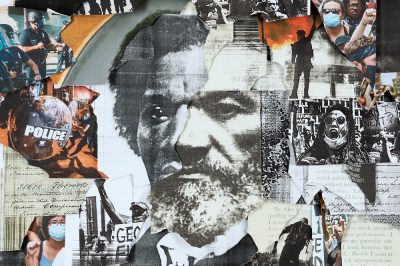 The Elusive Promise of the Underground Railroad. By Eric Herschthal / The New Republic
The Elusive Promise of the Underground Railroad. By Eric Herschthal / The New Republic
For enslaved Black Americans contemplating escape before the Civil War, the North increasingly looked like a bad option. Though Northern states had abolished slavery by the early nineteenth century, free Blacks were denied the right to vote, had limited employment options, and endured legal segregation. Much of the Midwest restricted free Blacks from even entering. Three new books show how Northern states betrayed Black people, and why many found Mexico a safer destination. Read more
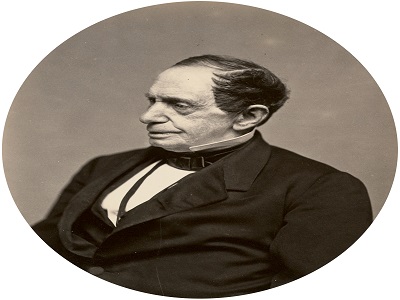 The founder of Johns Hopkins owned enslaved people. Our university must face a reckoning. By Martha S. Jones / Wash Post
The founder of Johns Hopkins owned enslaved people. Our university must face a reckoning. By Martha S. Jones / Wash Post
To some, it is an all-too-familiar story and perhaps not a significant one in a year of racial reckoning: Another elite college discovers ties to slavery. But for many of us who work at Johns Hopkins University, the shattered myth of our university founder, long admired as a Quaker and abolitionist, rattles our school community as well. Johns Hopkins University confirmed Wednesday that its namesake benefactor owned enslaved people. Hopkins, the descendant of Maryland planters, largely derived his wealth from real estate, railroads, banking — and by being party to slavery’s crime against humanity. Read more
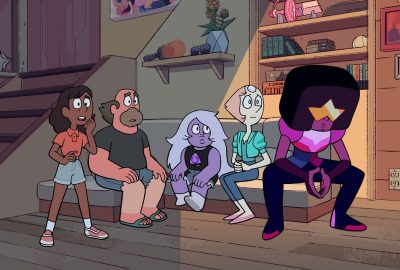 In viral anti-racism PSA, “Steven Universe” character Pearl challenges our whitewashed history. By Ashlie Stevens / Salon
In viral anti-racism PSA, “Steven Universe” character Pearl challenges our whitewashed history. By Ashlie Stevens / Salon
Pearl (Deedee Mango) of the animated series “Steven Universe” has a message for Cartoon Network viewers: Tell the whole story. In a new public service announcement that began running on the network beginning Dec. 3, the character asks a classroom of students who invented the lightbulb. “Thomas Edison,” they brightly respond. That’s not entirely true. Pearl reveals that the invention could be more rightly attributed to Lewis Howard Latimer, the Black inventor responsible for creating the filament inside the bulb. “We’re not going to mention why he invented the filament? To create a better standard of living for people who had just been freed from slavery?” she says. “Are we going to ask about why kids are learning about Thomas Edison and not learning about Lewis Latimer?” Read more
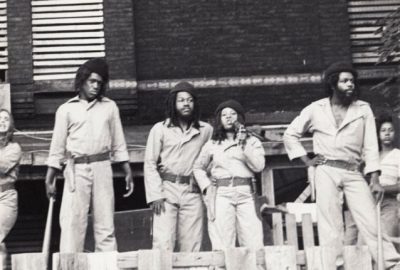 “40 Years a Prisoner” confronts the police we’re supposed to trust “telling bold-faced lies.” By D. Watkins / Salon
“40 Years a Prisoner” confronts the police we’re supposed to trust “telling bold-faced lies.” By D. Watkins / Salon
Africa Jr.’s journey is brilliantly related in the new HBO documentary film, “40 Years a Prisoner,” directed by Tommy Oliver and available now on HBO Max. Featuring an all-star ensemble of producers including The Roots, Common and John Legend, “40 Years A Prisoner” is a compelling film about the horrors of America’s criminal justice system. The story begins in 1978 when Philadelphia police raided MOVE, a back to nature organization based on love, among other peaceful principles. Africa’s parents, two MOVE members, were arrested during that raid on trumped up charges and convicted before he was born. In the film, Oliver documents Africa Jr.’s life pursuit of freeing his parents, along with other MOVE members, and a decades-long battle with the Philadelphia police department. I recently got a chance to talk with Africa Jr. and Oliver about the film on an episode of “Salon Talks.” Read more
 In a year of Black Death, the movies showed us Black Life. By Ann Hornaday / Wash Post
In a year of Black Death, the movies showed us Black Life. By Ann Hornaday / Wash Post
From a literal plague that took the lives of a disproportionate number of people of color to the killings of George Floyd, Breonna Taylor, Ahmaud Aubury and, most recently, Casey Goodson, 2020 has threatened to become the Year of Black Death. When “Black Panther” star Chadwick Boseman died of colon cancer in August, it felt like an especially cruel blow — one that shattered not just the life of a brilliant young artist but the dreams of a community for whom he symbolized Blackness at its most historically regal and cosmically aspirational. But while anguish and outrage mounted, something else was happening on our screens. When the theaters closed and American audiences encountered endless streaming choices, what they found were films that, in a variety of ways and through disparate forms, presented Black stories as quintessentially American and, ultimately, universal. Read more
Related: Atlanta Is the New Influencer Capital of America. By Taylor Lorenz / NYT
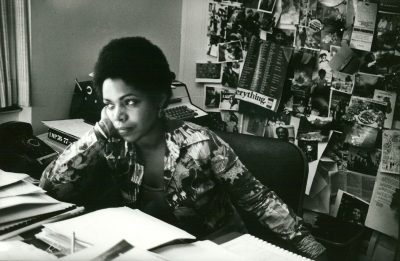 Why Is Publishing So White? By Richard Jean So / NYT
Why Is Publishing So White? By Richard Jean So / NYT
We guessed that most of the authors would be white, but we were shocked by the extent of the inequality once we analyzed the data. Of the 7,124 books for which we identified the author’s race, 95 percent were written by white people. Author diversity at major publishing houses has increased in recent years, but white writers still dominate. Non-Hispanic white people account for 60 percent of the U.S. population; in 2018, they wrote 89 percent of the books in our sample. “Many white editors are not exposed to Black life beyond the headlines,” said Ms. Brown, pictured here at her desk at Doubleday in 1976. Read more
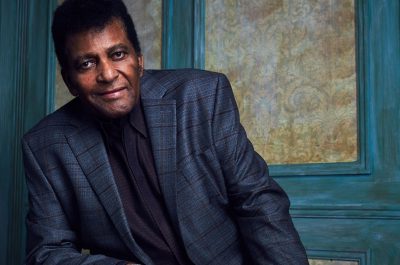 Charley Pride, Trailblazing Country Music Star, Dies At 86. By Mark Kennedy / HuffPost
Charley Pride, Trailblazing Country Music Star, Dies At 86. By Mark Kennedy / HuffPost
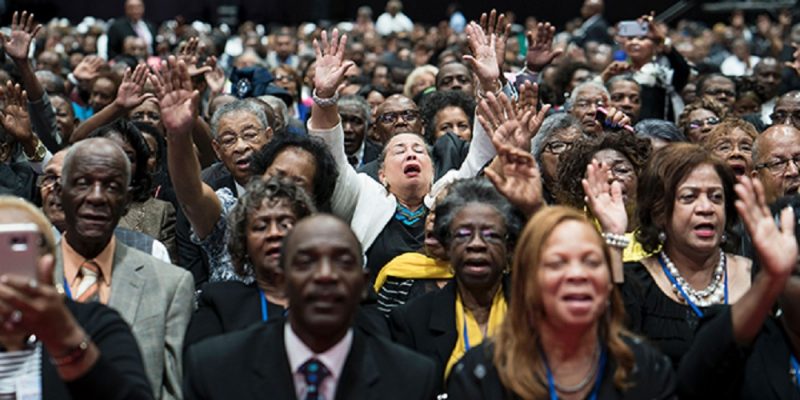 The Spiritual Tradition of Black Folk Finds Expression in the Candidacy of Raphael Warnock. By Otis Moss III / Wash Post
The Spiritual Tradition of Black Folk Finds Expression in the Candidacy of Raphael Warnock. By Otis Moss III / Wash Post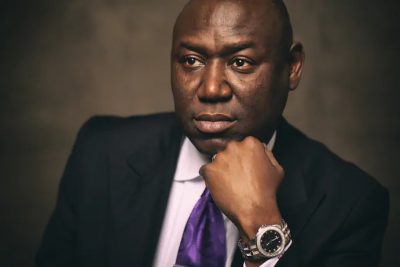 ‘We can’t engage in the intellectual justification of discrimination,’ says lawyer representing George Floyd’s family. By KK Ottesen / Wash Post
‘We can’t engage in the intellectual justification of discrimination,’ says lawyer representing George Floyd’s family. By KK Ottesen / Wash Post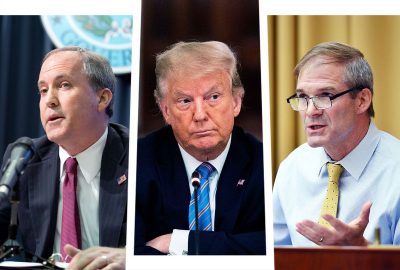 Republicans want more than a coup: Trump’s loyalty test exposes their hatred for democracy. By Amanda Marcotte / Salon
Republicans want more than a coup: Trump’s loyalty test exposes their hatred for democracy. By Amanda Marcotte / Salon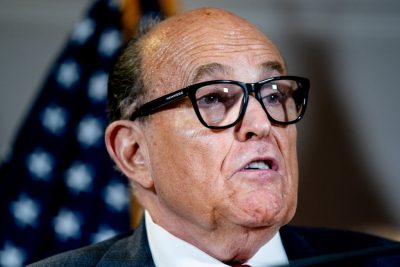 Covid Meds Are Scarce, but Not for Trump Cronies. By Michelle Goldberg / NYT
Covid Meds Are Scarce, but Not for Trump Cronies. By Michelle Goldberg / NYT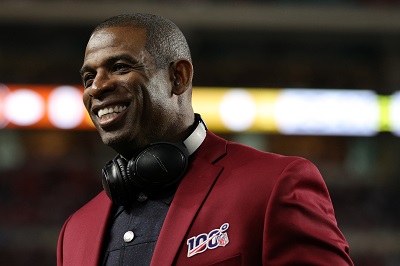 Deion Sanders is inspiring hope at Jackson State. But what happened at Prime Prep? By Candace Buckner / Wash Post
Deion Sanders is inspiring hope at Jackson State. But what happened at Prime Prep? By Candace Buckner / Wash Post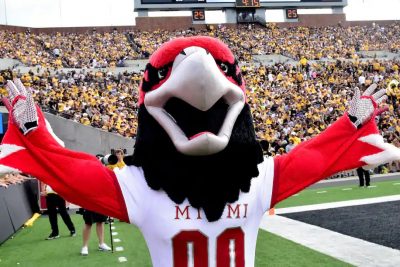 How will fans feel years after dropping the Redskins nickname? Miami (Ohio) provides a clue. By Chuck Culpepper / Wash Post
How will fans feel years after dropping the Redskins nickname? Miami (Ohio) provides a clue. By Chuck Culpepper / Wash Post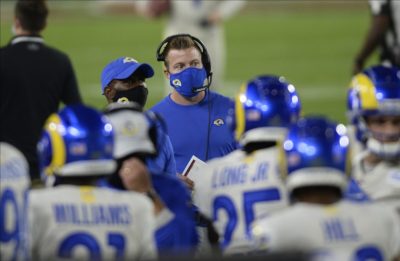 Rams players donate $750,000 to 25 nonprofits focused on social justice. By Gary Klein / LA Times
Rams players donate $750,000 to 25 nonprofits focused on social justice. By Gary Klein / LA Times Experts warn of low Covid vaccine trust among Black Americans. By P.R. Lockhart / NBC News
Experts warn of low Covid vaccine trust among Black Americans. By P.R. Lockhart / NBC News What Biden’s cabinet picks really say about diversity. By Paul Begala / CNN
What Biden’s cabinet picks really say about diversity. By Paul Begala / CNN More US churches commit to racism-linked reparations. By David Crary / ABC News
More US churches commit to racism-linked reparations. By David Crary / ABC News The Retirement Crisis Facing Black Americans. By Rodney Brooks / US News
The Retirement Crisis Facing Black Americans. By Rodney Brooks / US News For Air Force Leader, Making Video On Racism He’s Faced Was ‘The Right Thing To Do.’ By Rachel Martin / NPR
For Air Force Leader, Making Video On Racism He’s Faced Was ‘The Right Thing To Do.’ By Rachel Martin / NPR The Senseless Killing of Brandon Bernard. Bridget Read / MSN News
The Senseless Killing of Brandon Bernard. Bridget Read / MSN News Minneapolis Shifts $8 Million In Police Funding, Keeps Force At Current Level. By Avie Schneider / NPR
Minneapolis Shifts $8 Million In Police Funding, Keeps Force At Current Level. By Avie Schneider / NPR Descendants of enslaved Blacks explore Virginia history. By Susan Svrluga / Wash Post
Descendants of enslaved Blacks explore Virginia history. By Susan Svrluga / Wash Post The Elusive Promise of the Underground Railroad. By Eric Herschthal / The New Republic
The Elusive Promise of the Underground Railroad. By Eric Herschthal / The New Republic  The founder of Johns Hopkins owned enslaved people. Our university must face a reckoning. By Martha S. Jones / Wash Post
The founder of Johns Hopkins owned enslaved people. Our university must face a reckoning. By Martha S. Jones / Wash Post In viral anti-racism PSA, “Steven Universe” character Pearl challenges our whitewashed history. By Ashlie Stevens / Salon
In viral anti-racism PSA, “Steven Universe” character Pearl challenges our whitewashed history. By Ashlie Stevens / Salon “40 Years a Prisoner” confronts the police we’re supposed to trust “telling bold-faced lies.” By D. Watkins / Salon
“40 Years a Prisoner” confronts the police we’re supposed to trust “telling bold-faced lies.” By D. Watkins / Salon In a year of Black Death, the movies showed us Black Life. By Ann Hornaday / Wash Post
In a year of Black Death, the movies showed us Black Life. By Ann Hornaday / Wash Post Why Is Publishing So White? By Richard Jean So / NYT
Why Is Publishing So White? By Richard Jean So / NYT Charley Pride, Trailblazing Country Music Star, Dies At 86. By Mark Kennedy / HuffPost
Charley Pride, Trailblazing Country Music Star, Dies At 86. By Mark Kennedy / HuffPost